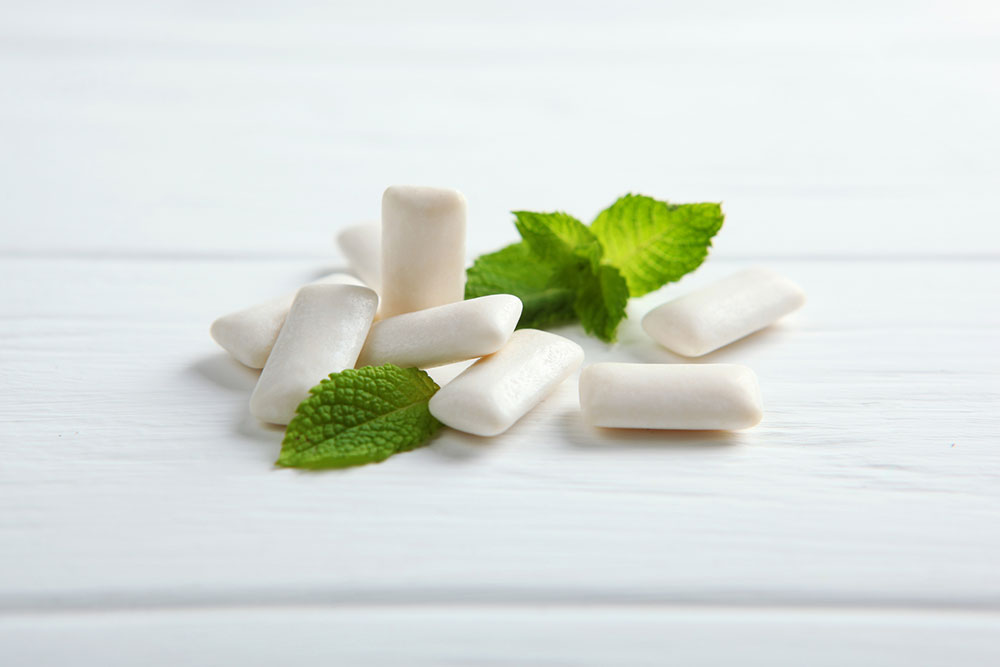
18 foods that can help mask and reduce bad breath
Bad breath, also known as halitosis, can be an embarrassing issue affecting a person’s confidence and social interactions. While maintaining good oral hygiene is crucial, it is not just about using mouthwash and brushing teeth. It involves making conscious food choices as well. The foods and beverages one includes in regular meals can also play a significant role in the battle against bad breath. Here are 20 foods and beverages that can help one maintain fresh breath.
Apples
Apples are a fantastic choice for combating bad breath. Their natural crunchiness and high water content stimulate saliva production. Saliva helps rinse away odor-causing bacteria and food particles, leaving the mouth feeling refreshed. Additionally, the fibrous texture of apples can scrub the teeth, contributing to better oral hygiene.
Water
Staying adequately hydrated is vital in the battle against bad breath. A dry mouth can lead to the proliferation of odor-causing bacteria. Drinking plenty of water and fluids all through the day helps maintain the production of saliva, which not only keeps the mouth moist but also helps wash away bacteria and food remnants.
Yogurt
Yogurt contains probiotics, which are beneficial bacteria that help balance the oral microbiome. A balanced oral microbiome can reduce the growth of bacteria responsible for bad breath. Opt for plain, sugar-free yogurt to maximize its effectiveness in promoting better breath.
Green tea
Green tea contains polyphenols, natural compounds with antibacterial properties. These polyphenols can help kill bacteria in the mouth and combat bad breath. Additionally, green tea is an excellent alternative to sugary beverages that can contribute to oral health issues.
Parsley
Parsley isn’t just a garnish; it’s a natural breath freshener. Its natural oils contain compounds that can neutralize odors in the mouth . Chewing on a sprig of parsley after every meal can leave the breath smelling clean and pleasant.
Celery
Celery is a high-water-content vegetable with a satisfying crunch. When one chews on celery, its fibrous texture acts as a natural toothbrush, scraping away food particles and bacteria from teeth and gums. This helps maintain better oral hygiene and, in turn, fresher breath.
Carrots
Like celery, carrots are also crunchy and fibrous. Chewing on carrots promotes saliva production, which aids in cleaning the mouth and neutralizing odor-causing bacteria. Incorporating carrots into meals can help keep the breath fresh.
Sugarless gum
Sugarless gums are one of the best ways to stimulate saliva production, which is crucial in maintaining fresh breath. The increased saliva flow while chewing helps wash away bacteria and food debris. Look for gum with xylitol, a sugar substitute known to inhibit bacterial growth.
Berries
Berries like strawberries and blueberries are packed in vitamin C, which can help combat gum disease, a common cause of bad breath. Vitamin C strengthens the gums and helps maintain oral health, ultimately contributing to fresher breath.
Almonds
Almonds contain natural oils that can help reduce the levels of bacteria in the mouth, one of the key contributors to bad breath. Additionally, their crunchiness can assist in cleaning the teeth, promoting better oral hygiene.
Cinnamon
Cinnamon is not limited to its kitchen use; it also acts as a natural breath freshener. It contains essential oils with antimicrobial properties that help manage the bacteria responsible for bad breath. Sprinkle cinnamon on yogurt or oatmeal to enjoy its taste and breath-freshening benefits.
Fennel seeds
Over the years, fennel seeds have been used as a natural remedy to freshen breath. Chewing on these seeds can help neutralize odors, leaving the mouth smelling pleasant. They’re particularly handy after meals when one can’t brush their teeth immediately.
Ginger
Ginger not only adds a flavorful kick to the meals but also contributes to fresher breath. Its natural compounds can mask bad breath and provide a refreshing taste. Try ginger tea or add fresh ginger to the dishes to experience its fresh breath-enhancing effects.
Spinach
Leafy greens like spinach are high in chlorophyll, a natural compound known for its odor-neutralizing properties. Chlorophyll can help neutralize odors and promote better oral health, ultimately leading to fresher breath. Including spinach in the food regimen is a tasty way to maintain good breath.
Cheese
Cheese helps neutralize acids in the mouth and lower the risk of cavities, which can lead to bad breath. Cheese also promotes saliva production, contributing to fresher breath. Enjoy a cheese platter or add cheese to the preferred dishes to benefit from it.
Citrus fruits
Citrus fruits like oranges, lemons, and grapefruits are high in vitamin C, essential for gum health. Gum disease can contribute to bad breath, and vitamin C helps combat it. However, be mindful of their acidity, which can erode tooth enamel. Rinse the mouth with water after eating citrus fruits to minimize this effect.
Basil
Basil, with its aromatic and flavorful leaves, is not only a culinary delight but also a natural breath freshener. The essential oils in basil, including eugenol, have antimicrobial properties that help combat the bacteria responsible for bad breath. Chewing on a few fresh basil leaves or incorporating basil into the dishes can leave the mouth with a pleasant, minty scent. Additionally, basil’s refreshing taste can mask odors, making it a valuable addition to meals for maintaining better breath.
Mint leaves
Mint leaves are a classic choice for freshening the breath. Chewing on mint leaves after meals or making homemade mint tea can provide an instant burst of freshness and mask unpleasant odors. Mint leaves also promote saliva production, aiding in the removal of odor-causing bacteria. Additionally, mint leaves offer relief from indigestion, making them perfect for a post-meal breath freshener.
Incorporating these foods into the food regimen, while also practicing good oral hygiene, can significantly improve bad breath and maintain oral health. However, it is advisable to consult a nutritionist before making any food changes in daily meals.





